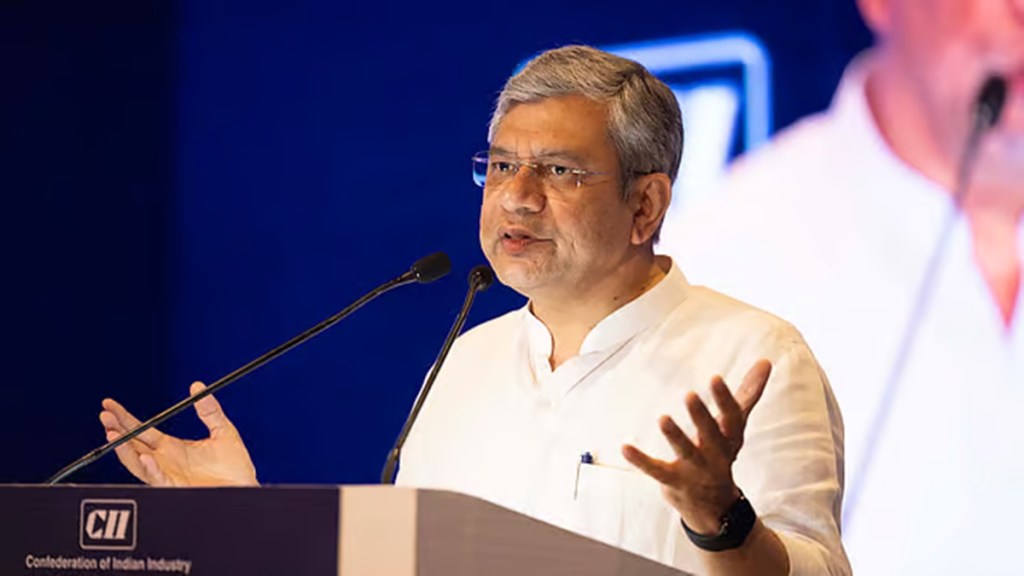Union IT and railways minister Ashwini Vaishnaw on Thursday stated that both manufacturing and services are crucial for driving India’s next phase of economic growth. He urged the industry to shift its focus toward designing products domestically.
Speaking at the CII Annual Business Summit in New Delhi, Vaishnaw said that the country has come a long way from developing technology, both on the software and hardware side, to the production of finished goods, components, and now semiconductors. He said the government is witnessing change in the industry’s intent to to transform India into a “product nation”.
“Using the change in mindset, we can develop as a product nation,” Vaishnaw said. “And to be that, if we can put in that required effort towards design thought process in whatever we do, then we can really take the growth to the next level.”
He stressed the importance of retaining intellectual property (IP) rights and ensuring manufacturing happens within the country, alongside continued growth in the services sector.
Vaishnaw also said that the industry should stay prepared for the changes being brought in after the arrival of artificial intelligence (AI). He announced that the government will procure an additional 14,000 graphics processing units (GPUs) under the National AI Mission, supplementing the earlier acquisition of 18,000 GPUs.
This move is expected to enhance India’s capacity to develop and train advanced AI models, including both Large Language Models (LLMs) and Small Language Models (SLMs), which form the backbone of generative AI technologies.
The minister affirmed the government’s commitment to supporting foundational AI model development under the AI Mission. These models, he said, will be open source and broadly accessible.
“The goal is to ensure AI tools and infrastructure are not concentrated in the hands of a few but are accessible to all innovators and developers,” he added.
“We are developing many applications which will be open source to everybody so that you can use those applications and see how you can improve productivity within your own industries,” Vaishnaw said.
Pointing out that the government has set up a virtual AI Safety Institute, he urged India inc to use AI in a “humane” manner.
On the Railways front, Vaishnaw shared that India has become the world’s largest locomotive manufacturer.
“Our locomotive manufacturing is 1,600 produced in last year, and that is more than the combined production of US, Europe and Japan,” he said, adding that the country requires such high production volumes to meet its growing needs.
He further announced that all old coaches in the Indian Railways network would be replaced over the next three years. Out of 1,300 railway stations, 103 have already been modernised.
“At such an hour, more industries must participate and bring in new ideas and technology,” he said.
To support small businesses and encourage innovation, the railways ministry is also planning to introduce a new policy within the next two months. The policy will allow new ideas to be tested in a sandbox environment before being scaled up.
“We’ll have that kind of policy very soon,” he said.

